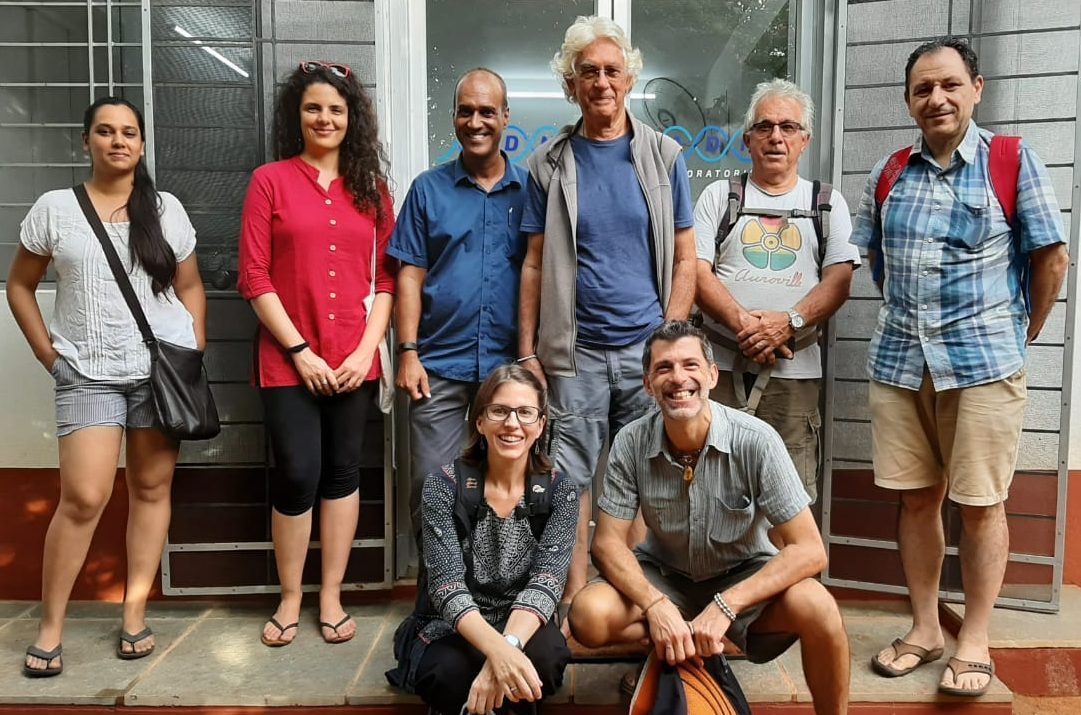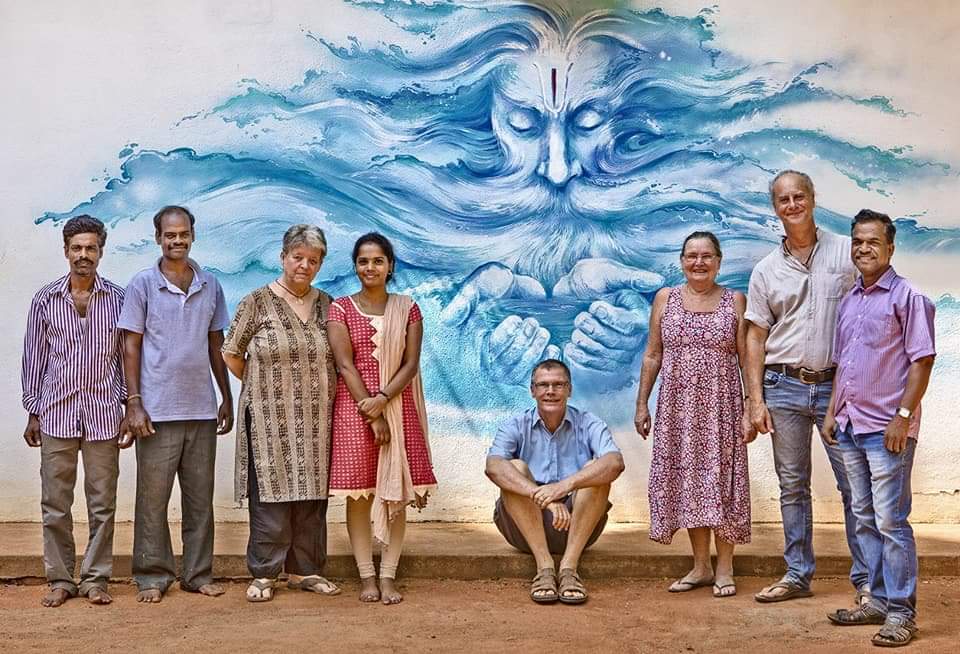Waste Water Recycling
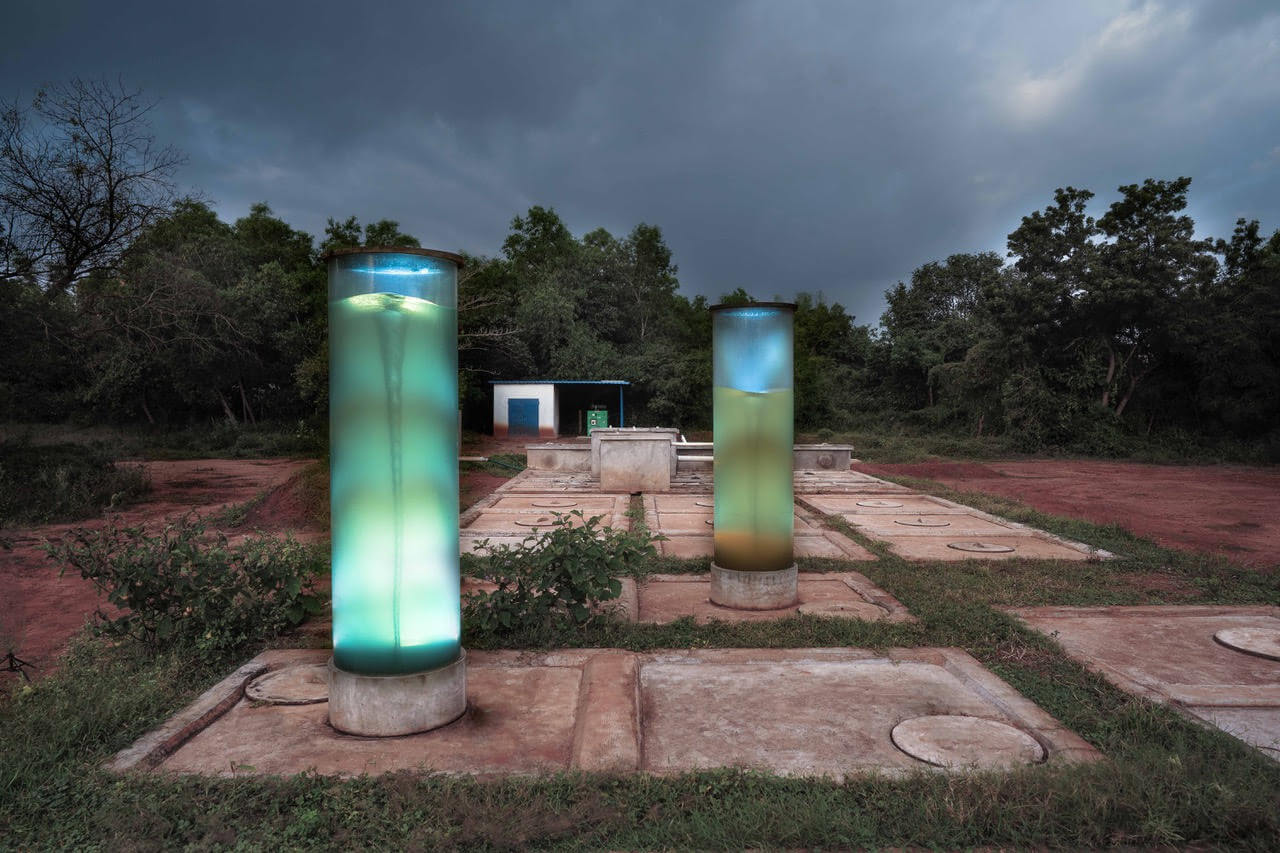
Auroville is situated on a large plateau, about 56 metres above sea level, sloping gently towards the Bay of Bengal. The absence of rivers or major lakes makes it necessary to draw water from underground wells for its present population of over 3000 people. If the projected growth rate towards a small city of 50,000 people is to be achieved and sustained, wastewater treatment will need to become an essential part of the overall city water use.
The Auroville community has been experimenting with small scale wastewater recycling systems for over fifteen years. During that time, pilot systems were built, experience was gathered, and the operating skills with such plants improved.
In the mid-eighties, the first experiments with recycling of wastewater took place. Absence of specialised literature and proper guidance made the small household, pioneer waste water plants, more of an exercise in learning from trial and error. A dedicated group maintained the interest in the subject and relied for expert advice and information mainly on visiting experts from western countries. During the nineties the preferred choice for recycling domestic wastewater shifted towards treatment systems called planted filters. With such natural functioning systems one could obtain a high quality effluent. The large space requirement for this kind of system was not viewed as a disadvantage since the treatment systems can be beautifully landscaped into any environment, even urban.
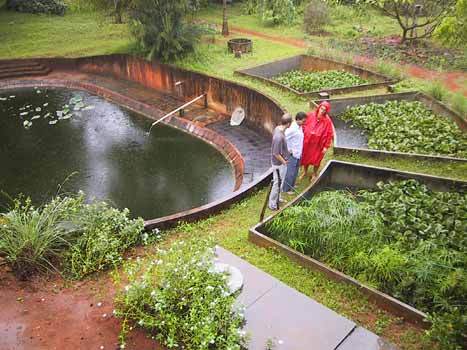
From 1995 to 1998 Auroville participated in a European Union funded project on Decentralised Wastewater Systems (DEWATS). The project was executed by BORDA (Bremen Overseas Research and Development Association), and gave Auroville the opportunity to research and develop horizontal planted filters, also called constructed wetlands or root zone treatment systems. Access to expertise in the technology proved extremely beneficial for further growth and development. Four specially designed research plants were constructed and tested under the project.
At present Auroville operates nearly sixty treatment systems for recycling domestic wastewater, from small individual households to communities and small industrial units, producing effluent with similar characteristics to domestic wastewater.
The use of horizontal planted filters for decentralised wastewater treatment in Auroville, an overview and description.
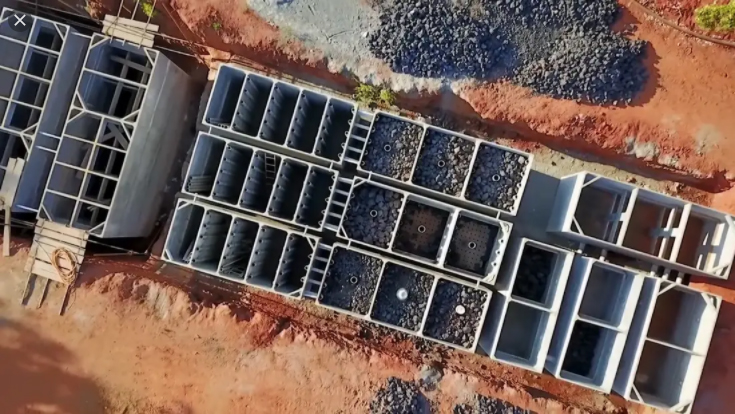
The plant was completed in 2019, and is currently returning treated water to eight communities for use in their gardens. Water that is not used is being captured in four tanks of 50 cubic metres, located in the Mahalakshmi Park.
The video below shows very efficiently all aspects of this realization.
Situated close to the Matrimandir, this water can be used to water the gardens there.
While the WWTP in the RZ is currently under the management of CSR, the plan is to transfer it to the users for management. The Water Users Association was created in May 2019, with one representative from each community that is currently hooked up to the system. The group meets once per month to discuss and decide on issues related to the WWTP: treated water return timings, how to manage costs, etc. The group also shares best practices when it comes to treated water usage.
Contact: csr@auroville.org.in
More than 60 natural wastewater treatment systems are in use in Auroville. Most recycling systems combine a pre-treatment device, a main treatment planted filter, and a post-treatment holding facility, usually consisting of one or more ponds or polishing tanks. Research and development has shifted to more efficient pre-treatment. Auroville has several units which are actively implementing waste water treatment systems, including CSR, Aqua engineers, and others.
Some of the active systems are listed below:
- Merriam Hill / Centre Field: septic tank/ planted filter/ collection tank / 15 users
- Carel's House / Samasti: septic tank/ planted filter/ polishing tank / 16 users
- Shradhanjali / Auroshilpam: septic tank/ lagoon system with aquatic plants/ overflow/ 27 users
- Jean & Eva's House / Djaima: septic tank/ planted filter/ collection tank/ 2 users
- Djaima community housing: septic tank/ planted filter/ infiltration/ 18 users
- Vikas community: Lagoon system with aquatic plants/ polishing tank/ 25 users
- Auromode / Auroshilpam: baffled reactors/planted filter/ sump/ 130 users
- Grace community: Imhoff tank/ rootzone treatment system/ overflow sump/ 35 users
- Samasti Community II: septic tank/ planted filter/ collection tank/ 20 users
- Prarthna community: septic tank/ planted filter/collection tank/ overflow & infiltration/ 25 users
- Invocation, Surrender and Arathi community: Imhoff tank/ planted filter/ polishing pond/ 60 users
- Visitors' Centre: septic tank/ flushing tank/ planted filter (vertical type)/ overflow canal / 50 users
- Aspiration Community: septic tank/ Imhoff tank/ planted filter/ polishing pond/ 150 users
See Also
-
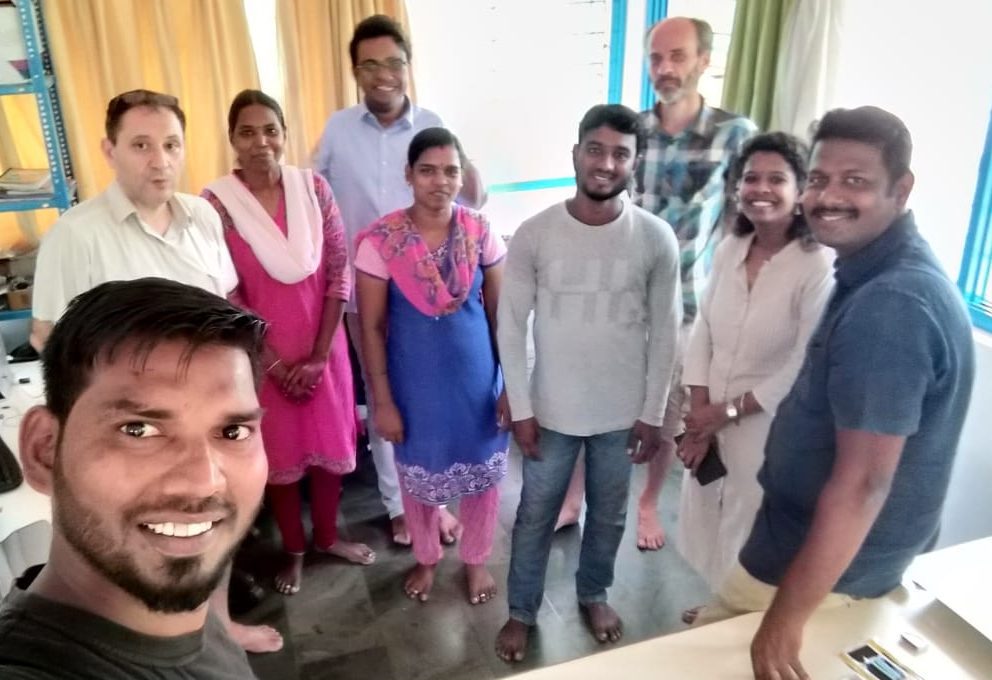
CSR Geomatics
Mapping Auroville's GeographyIn 2017, CSR – Auroville Centre for Scientific Research – created a CSR Geomatics cell. Geomatics is a discipline dedicated to the “collection, distribution, storage, analysis, processing, and presentation of geographic data or geographic information […] it consists of products, services and tools involved in the collection, integration and management of geographic data. It includes geomatics engineering (and surveying engineering) and is related to geospatial science (also geospatial engineering and geospatial technology).
